I never liked the phrase ‘that’s just the circle of life’. It always came as the response to the sadness I felt while grieving the death of a kitten abandoned in the barn, or a bird who discovered too late the nature of a hard glass window. Without meaning to, the phrase dismissed my tender child heart. Unintentionally, the messenger conveyed the message behind the message: if you are sad about death, you don’t really understand or believe your own faith.
‘Death,’ I was taught, ‘is just a part of life. It is normal and to be expected: each of us will die one day, after all. Yes it is sad but we shouldn’t dwell on the sadness–we should look forward to the next life and the resurrection where we’ll live again, somehow, some way.’ Cry a little, but not too much. Feel sad, but not too sad. Grieve, but not too long.
I tried to get on board, I tried to believe just like the grown ups around me seemed to believe: that death is part of our living and embodied experience and that it is something we must accept and make peace with. But this message never sat quite right with me. I could never truly accept death as the God ordained plan for all things. Death? The cessation of being? Nonexistence? Suffering, loss, disease and ultimately expiration? There didn’t seem to be many answers to these kinds of concerns. Rather, I was reminded that ‘even Jesus died, but rose again, and so will we one day. In fact, if we don’t die, we can’t be resurrected with Christ.’ Well of course I believed that, I believed it and still do because it’s in scripture and because it does truly seem to be what the apostles taught and what Christ himself taught. So I believed it was true, but somehow I didn’t feel any better. Just plucking a few Bible verses didn’t do anything to reassure my soul or solve the nagging problem in the back of my mind that death is just plain wrong.
Why does it bother me so much to put someone I love in the ground, to commit their body to the earth, their physical flesh into a cold, dark box in a cold, dark hole? Thinking just for a fraction of a second about their body decomposing… I can’t bear it. I can’t think of it. It’s too horrible. It makes me sick to my stomach and drives away any remaining appetite. I have to push it away as fast as I can and grasp at the first distraction that passes by.
It isn’t just the thought of death and the physical corruption of the bodies of my fellow man that disturbs me. I am hit hard by the suffering and death of animals, especially roadkill, innocent animals struck by metal boxes whizzing by at unthinkable speeds. Caught off guard, they are crushed in an instant as they cross the road with instinctual purpose, oblivious to the danger rushing back and forth across some invisible boundary between this field and that field. They don’t understand and perish as they seek to fulfill their God-given drives for food, mating or migration. I’m not supposed to feel bad. I’m not supposed to cry or feel sick about it. I’m supposed to just understand and accept their death, all death, in fact. Any expression of lament is met with a quick attempt to sooth me: ‘Aw, you poor girl… that’s just the circle of life, and death is a part of life. These animals were killed, yes, but that is to be expected; if they didn’t die on the freeway they would have died later by a predator or natural causes, wouldn’t they? Don’t worry, they’re not sentient, they probably don’t feel pain for very long, and they don’t have eternal souls.’ What it boils down to is one message: Your grief is misplaced.
What it boils down to is one message:
Your grief is misplaced.
These are just a few of the knee-jerk reactions given to those who lament the death of animals, my least favorite one–usually delivered with a condescending smirk–being: “You eat hamburgers don’t you? Then why are you sad for that poor squished raccoon on the side of the road when you eat hamburgers, huh? Are you sad for cows when you eat a hamburger?”
This logic never sat well with me in the moment, but upon later reflection it challenged me. ‘Do I lament the death of all life, or only select lifeforms? Does being sad about roadkill logically result in me becoming a vegetarian or vegan?’ Food source ethics is not what I am writing about here, and yet there is something linking these two ideas together that I can’t quite pinpoint or separate. Another topic for another day.
Responses such as these dismissed my tender child heart, my young heart still untarnished by the grime of life and of living, my heart still vulnerable and unprotected and thus able to perceive what grownups had long since forgotten: that death is sad and wrong and not how things are supposed to be. These responses shamed the tenderness of a heart still pure and undefiled, able to feel, to sense and to echo the heart of God for all creation. But somewhere along the line this heart got all banged up, and the only bandage that could be applied was the admonition to suck it up and be a big girl. Perhaps my feelings made grownups uncomfortable, reminding them of their own childhood innocence and their own sorrow and loss that was stuffed down and covered over. Their once-tender hearts had been hardened, numbed and desensitized, unable to feel any longer the sorrow at the death of an animal. Perhaps that’s the biggest win of the enemy of our souls: to desensitize us to death.
Perhaps that’s the biggest win of the enemy of our souls: to desensitize us to death.
There’s something so unnatural and unholy about death, even death from old age, not to speak of unnatural or tragic death. Was death always God‘s plan? Did God make us to die? Did the Lord and giver of life, Holy Spirit, fill our first parents Adam and Eve with the breath of life only to take it away? What about all creation made by Christ with intention? Are we higher than creation? Surely we are, since we are made in God’s own image and endowed with reason and conscience. If we are indeed the crown jewel of creation, does that mean God dismisses every other living thing or that He wills for all creatures to perish, and some to perish in horrific and painful ways? This can’t be the will of a loving God. It can’t be the original and perfect design of a Creator who endows even His lesser creatures with their own version of a spirit to willingly design them to suffer and die. I suppose this dances close to the line of that big question: why does God allow suffering? I’m not qualified to answer that question, nor am I sure I will ever understand the proper way to contemplate it.
Searching for answers I would bring these concerns to Christian men and women I looked up to. In sincere but weak attempts to quiet these mounting and increasingly-distressing questions, church leaders as well as laity employed all manner of reasoning. ‘All things shall pass away,’ they tell me, as if that were supposed to comfort me. ‘It will all be rolled up like a scroll and thrown away like an old garment. We don’t need this earth anyway, it is all transitory. Remember, we are Not Of This World! Our citizenship is in heaven. Don’t be sad. Don’t cry and certainly don’t be a tree hugger! God doesn’t mourn the death and destruction of creation, He cares about your soul and your salvation! That’s what it is all about, anyway: your personal salvation. Creation was designed to pass away, that’s just what it’ll do and we will all get new bodies and inhabit a new earth and a new heaven! Look up, look ahead, look forward!’
I guess I’m supposed to be happy believing that everything around me is just an elaborately decorated set piece on the stage of life. Just a painted set piece, don’t take it too seriously, it isn’t truly real, it doesn’t make it to the next life. It was designed for destruction. Somehow that doesn’t make me feel any better.
I guess I’m supposed to be happy believing that everything around me is just an elaborately decorated set piece on the stage of life. Just a painted set piece, don’t take it too seriously, it isn’t truly real, it doesn’t make it to the next life. It was designed for destruction. Somehow that doesn’t make me feel any better.
I needed Good News, because this mindset was poisoning my soul.
Is there any hope? Is there anyone who can bring me Good News, who can explain these longings in my soul for truth, life and beauty? For meaning, salvation and healing that touches me and extends outward, permeating all creation?
Maybe there is Good News I never grasped before: death itself has been put to death. Death has been defeated and the enemy and adversary of our souls who captures us and drags us down to the netherworld has been conquered. The enemy of Life has been bound and thrown into outer darkness to await final destruction. Life is not just energy infusing matter, it is not some nebulous animating force that we should seek to protect for its own sake. Life can only be understood with a capital ‘L’ for a proper noun. Life is how Christ described Himself when He said “I am the Way, the Truth and the Life.”

My favorite Orthodox icon is that of ‘The Harrowing of Hades’. Through the mediums of paint and wood we get a peek into another realm, a spiritual dimension. The icon depicts what Christ accomplished on the day between His crucifixion and resurrection. While His pure and sinless body lay dead in the grave His soul descended into Hades to liberate those in bondage to death, and to lead out the captives. We see Him reaching down, grasping Adam and Eve by the wrists and drawing them up from their graves. He pulls them from the wrist and not the hand because they have no power even to clutch Him. This work of rescue is completely dependent on the mercy of God, helped in no way by the powerless victims of death. The patriarchs, prophets and others gather around and marvel in amazement at this miracle. In His ultimate work of salvation Christ reaches into the dungeon of death and brings forth the captives. He has entered the house of the enemy of mankind and has tied up the strong man.
I love the part at the bottom of the icon where we see a dark figure in the form of a man, bound hand and foot, completely immobilized and at the mercy of the One who bound him. This figure represents death, the enemy of mankind that keeps us from God. This figure is the jailer that imprisons all those who have died, keeping them captive in the grave. Some icons show the chains and tools of wickedness that inflict death and pain on the human race; these are also depicted cast in darkness, mangled and useless scraps of metal.
This icon reveals a remarkable truth. Counted among the enemies of the human race is not only sin and the Devil, but death itself. Death is the enemy that steals us from God. When death is destroyed, Life can fill all in all, as was intended from the beginning of the universe. Life Himself descended to Hades, slaughtered death and emerged triumphant. God went to hell and back to restore life to all things.
This is the hope I cling to as I barrel down the freeway, passing small animals who perished journeying from one side to the other. The One I worship is the God of all creation, Who gives life to everything and who fills all things with Himself. He is Life itself. Christ said during His earthly ministry that He is the Way, the Truth and the Life, and St. John confirms that all things were created through Him, and in Him was life itself. Because I worship God in Trinity as Father, Son and Holy Spirit, I essentially worship the Author, Fashioner and Giver of all life, who is Life Himself. How then can I claim that the same God of Life is also the author of death? This I cannot accept. Death is the enemy. Life is fundamentally incompatible with death and mourns over death, just as Life Himself in Jesus mourned the death of Lazarus, raising him and others from the dead and restoring them to Himself.
The One I worship is the God of all creation, Who gives life to everything and who fills all things with Himself.
He is Life itself.
I only glimpse a fraction of this cosmic mystery, but that’s enough for me to continue on. Christ conquered death through his own death, sealing by this act the universal truth that my heart had been telling me the entire time: death is wrong. In the words of an Orthodox Easter song, “Christ is risen from the dead, trampling down death by death, and upon those in the tombs bestowing life!”
Perhaps I can take a little comfort in my tender child heart that sorrows when I hear a friend’s dog has passed away, my heart that winces in pain when I pass yet another mangled deer on the side of the road or see another devastating wildfire on the news. Maybe this flash of grief is a whisper from my spirit that knows something deeper than it has been able to express: ‘This is wrong! This isn’t goodness, light and truth!”
Maybe the next time I’m in my car and see a poor creature plucked from its life I can offer up to God the honest cry of my heart: “Lord, death, destruction, pain, loss and suffering… It isn’t right. It isn’t your plan. It isn’t what you made us or this world or these creatures for. Something is wrong, we’re sick, we are perishing. We need help. We need a savior, a savior named Life, a savior that doesn’t come just to reanimate corpses but one who will give us His very self, for He is Life itself.” As I drive on I offer this groan of my heart to God, to Life himself, and under my breath I whisper a quiet plea for mercy on the earth, on creation and on all mankind.
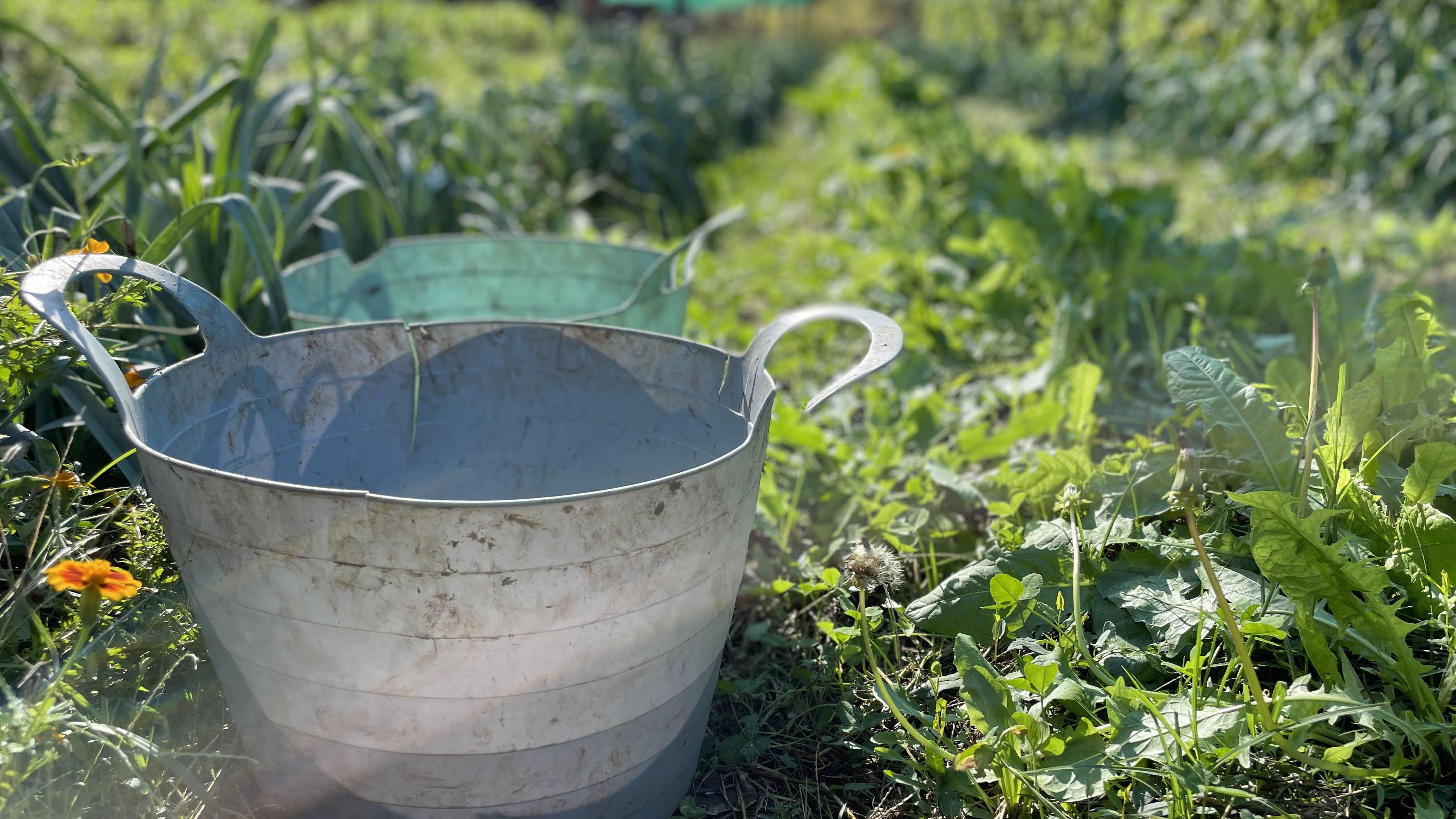

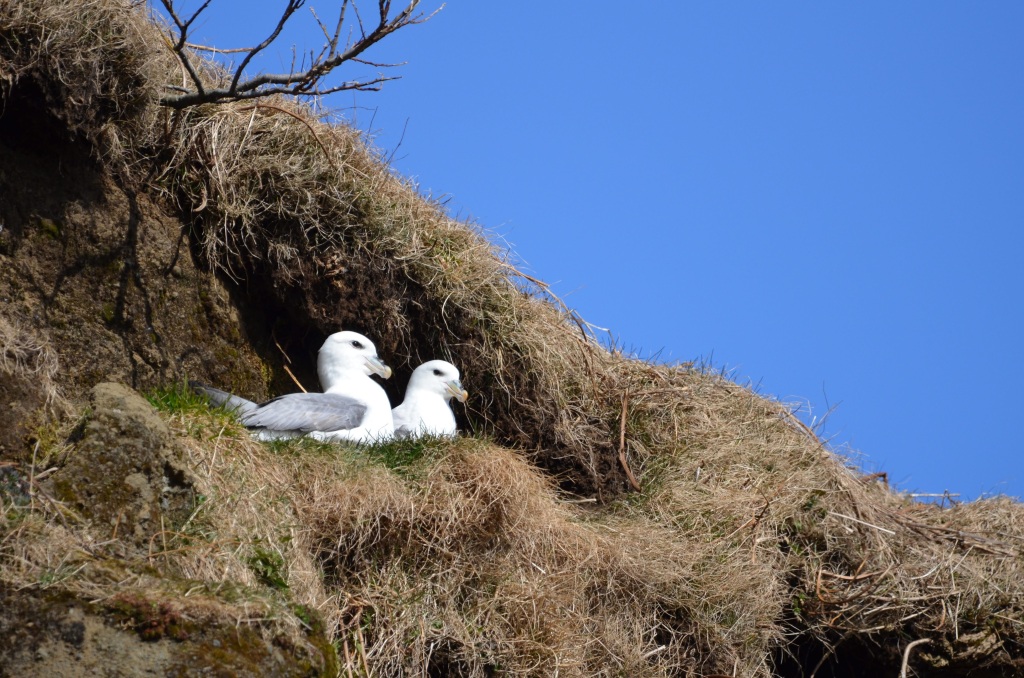
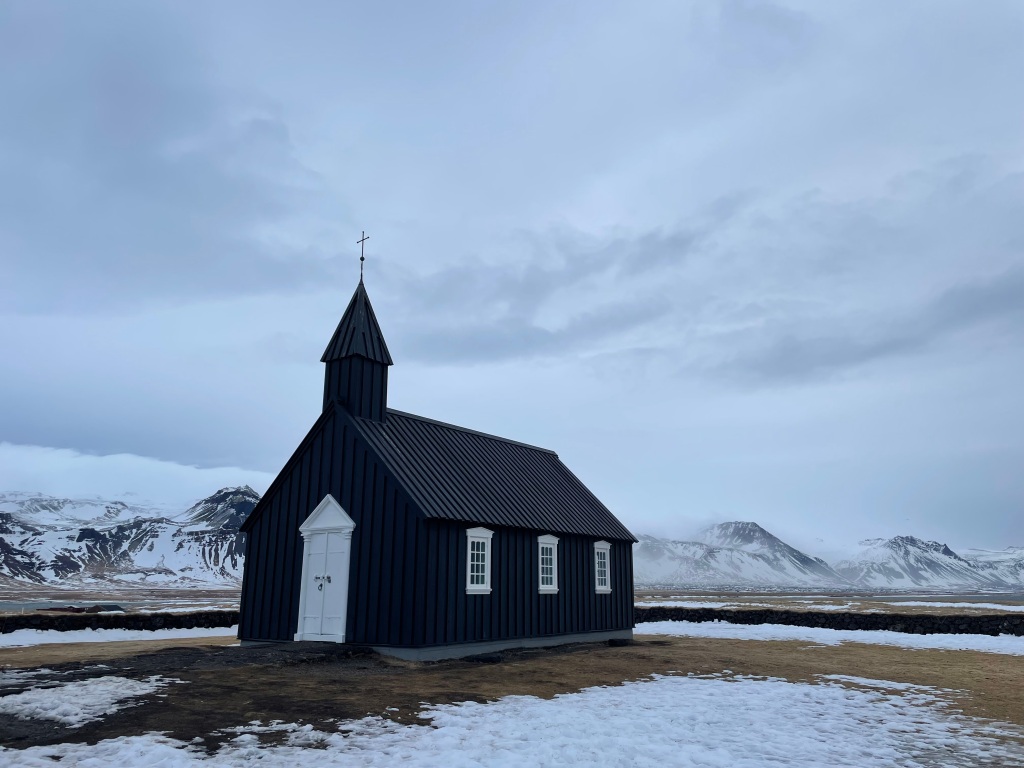
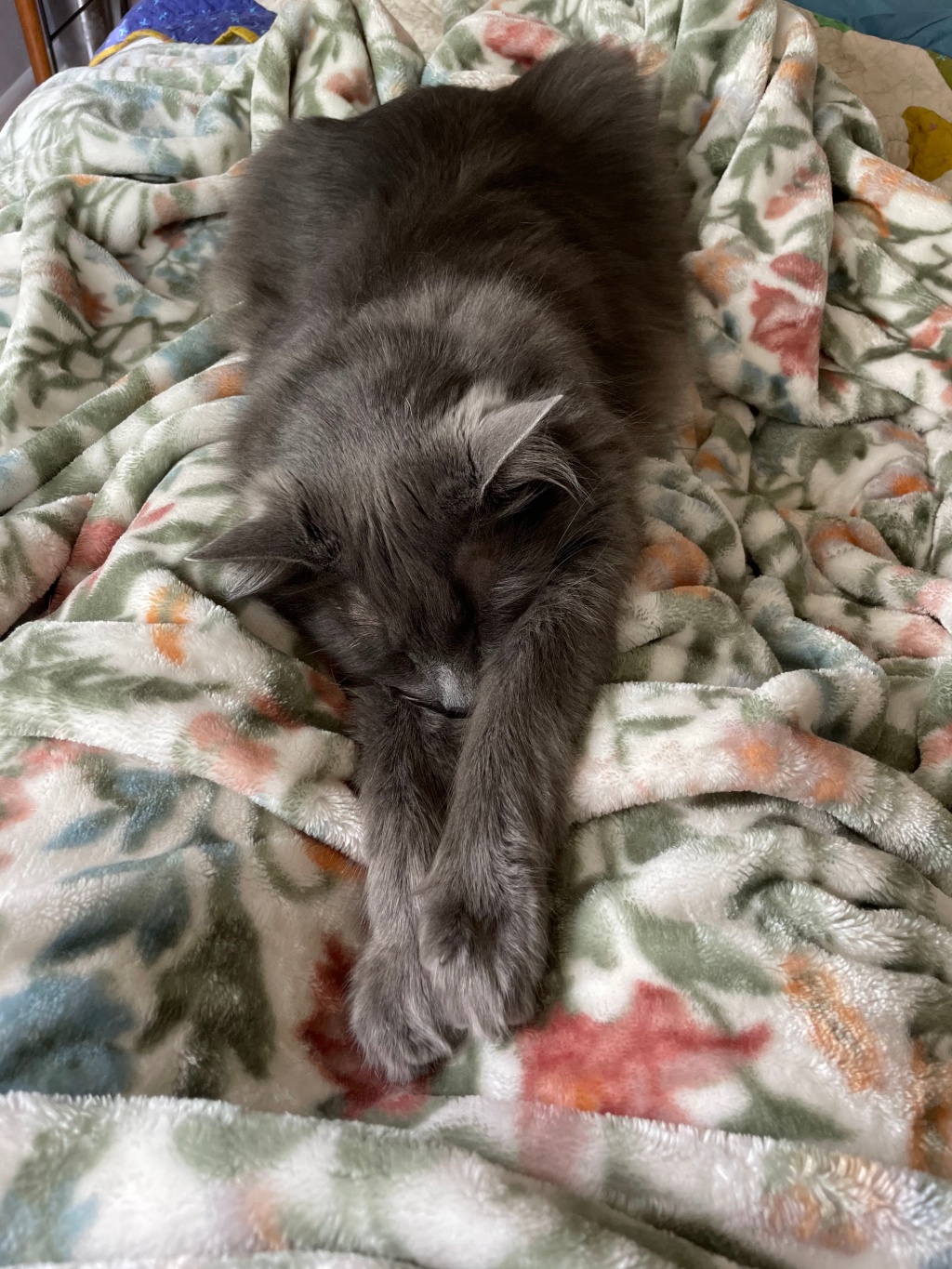
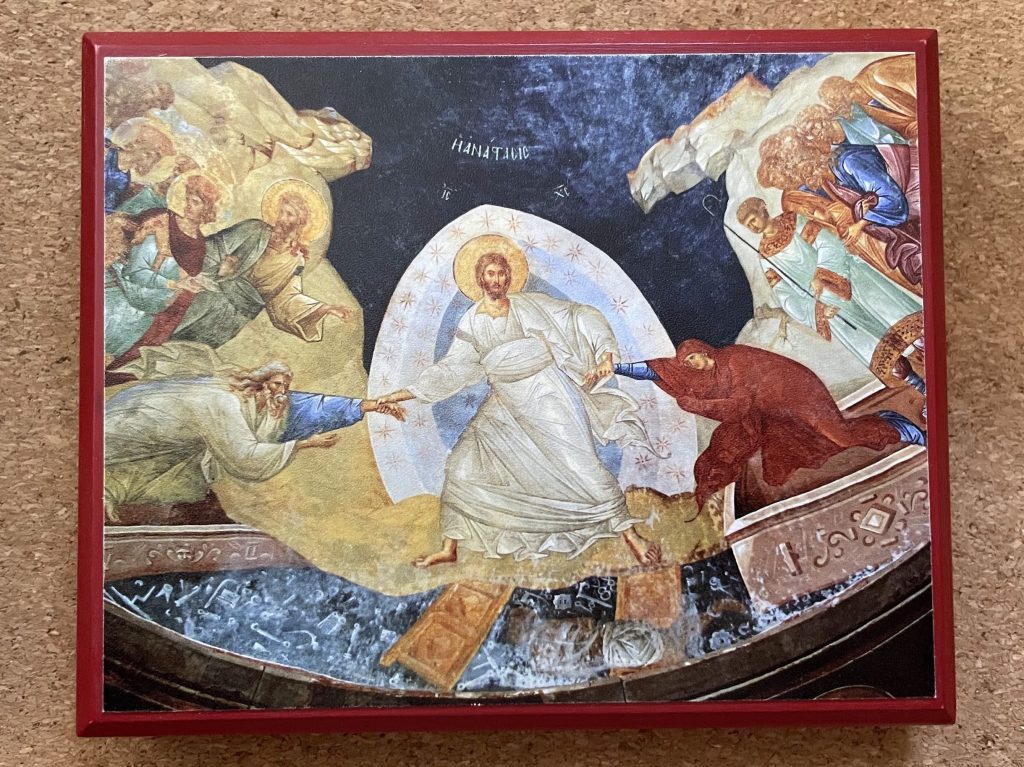
Leave a comment